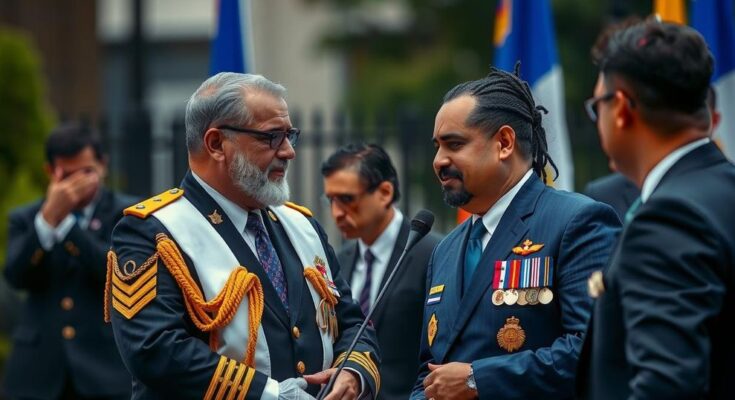Costa Rica honored El Salvador’s President Nayib Bukele with its highest diplomatic award for reducing gang violence, though his controversial methods, including suspending constitutional rights, have generated debate. Costa Rica struggles with increasing homicide rates, while Bukele enjoys broad public support following his election and policies. The two leaders acknowledged the importance of combating organized crime in Central America.
In a significant diplomatic gesture, Costa Rica has honored El Salvador’s President Nayib Bukele with its highest accolade, the National Order of Juan Mora Fernández. This recognition is attributed to Bukele’s aggressive campaign against gang violence, which has significantly reduced crime rates in El Salvador over the past two years. Costa Rican President Rodrigo Chaves commended Bukele’s achievements amidst his own country’s struggles with record homicide rates. However, this accolade has sparked controversy, as Bukele’s approach has involved the suspension of several constitutional rights, thus amplifying law enforcement’s authority. Despite criticism, Bukele’s strategies have garnered him considerable public approval, although Chaves faces challenges in establishing legislative majorities in Costa Rica’s congressional dynamics. As both leaders emphasize the importance of regional security, the implications of their methods highlight a complex dialogue about governance and public safety in Central America. In Costa Rica, homicides soared to a record high of 906 in 2023, elevating concerns over drug trafficking-related violence. Bukele underscored the necessity of prioritizing life and order, indicating that securing citizens’ safety must precede the guarantee of other rights. As both leaders navigate their political landscapes, their collaboration may have a profound impact on crime and governance throughout the region.
The article discusses a recent diplomatic recognition by Costa Rica towards El Salvador’s President Nayib Bukele, who has implemented controversial but effective measures to combat gang violence in his country. This recognition is juxtaposed with the challenges faced by Costa Rica, a nation historically noted for its stability and peace, now contending with rising violence attributed to drug trafficking. The context of this award highlights the regional implications of security policies and their reception in broader political scenarios.
In summary, Costa Rica has recognized President Nayib Bukele for his success in reducing violence in El Salvador, amidst growing concerns over crime in Costa Rica itself. This development reflects not only the complexities of regional governance but also the significant impacts of leadership styles on public safety and democratic integrity in Central America. Both leaders are navigating unique political landscapes, grappling with the balance of security measures and democratic principles.
Original Source: abcnews.go.com




